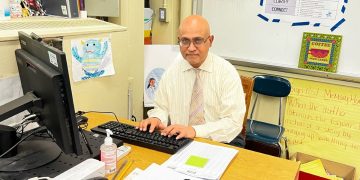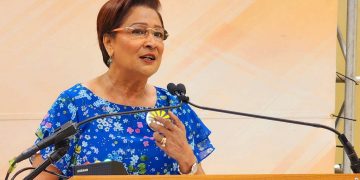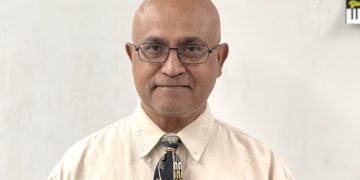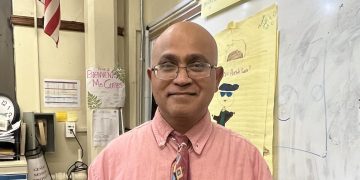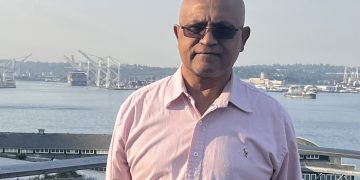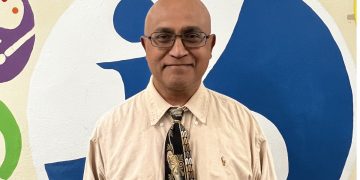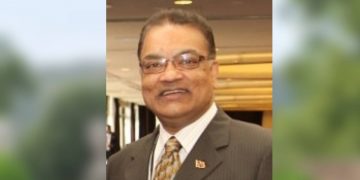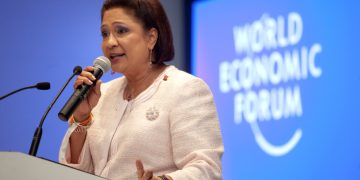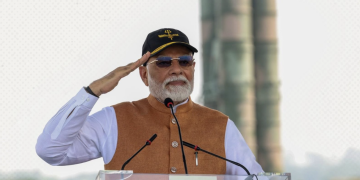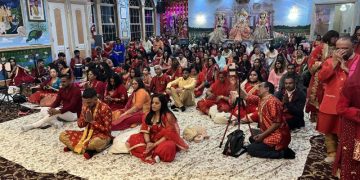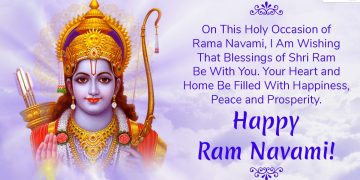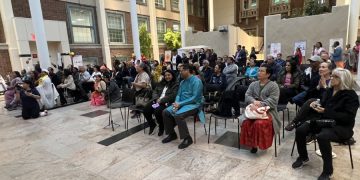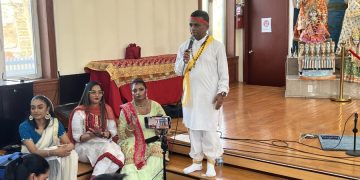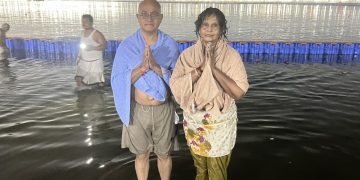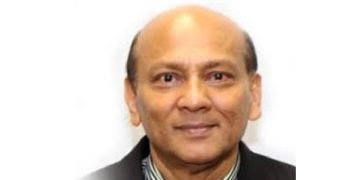It is with deep sadness I read of the passing of Father Malcolm Rodrigues (news item Dec 5). As a youngster growing up in Guyana during the 1970s, I remember him as a champion of freedom, justice, democracy, and quality. He played a significant role opposing the racist Burnham dictatorship and provided support in our struggle for right to form student clubs at the Corentyne High School where I was elected as President for the Hindu Society and the Student Organization even though he was a Catholic and I Hindu. His mind and activism were open to anyone and everyone who stood on the side of justice and who combated the Guyanese dictatorship. He was known to work unrelented to reduce structural inequalities and advance social, racial, gender and economic equality in Guyana. Blessings on his memory and legacy in the freedom and rights movement in Guyana.
I read a lot in the local papers about the activism of the Jesuit Priest and UG lecturer and was privileged to meet him. I also read of his activism in the now defunct Caribbean Contact (published out of Barbados) during the 1980s and 1990s after my migration to study in New York. He had dedicated his life to the welfare of the downtrodden and whose rights were violated, which would be the entire nation. He mingled with the poorest and live. I would like to share a few anecdotes about my encounters with the legendary activist to show his commitment to justice, fair play, democracy, and humanitarianism. He was legendary in the field of social services and human rights.
Father Rodrigues, a friend of well-known Catholic Father Cheerah who was my science teacher at CHS, was very supportive of our student protests (and boycott of classes) at the Corentyne High School (October 1976 and Spring 1977) that spread throughout the Corentyne and lasted almost two months. I was the student President and I interacted extensively with him, Rodney, Kwayana, and other social and human rights activists. Father Rodrigues, and other rights campions, traveled from Georgetown and joined us in meetings in January and February 1977 to plan strategies on the protests, participated in picketing exercises, and addressed public rallies. He was a lead speaker after Dr. Chaitram Singh and just before Dr. Walter Rodney at a large rally in Lower Miss Phoebe, Port Mourant on a school day afternoon in February 1977. As he and Rodney spoke, a GDF helicopter threateningly hovered above, apparently to intimidate the speakers and the crowd. I was among the organizers and promoter of the rally. We appealed to all to stand their ground; the large crowd did not disperse. Father Rodrigues laced into Burnham criticizing his governance and his action to send an army helicopter to instill fear in people. The crowd, the largest I had seen outside of a Jagan featured meeting, burst into laughter. Rodney followed up poking fun at him calling Burnham king kong who feared even donkeys coming together to feed. The staff, students, and parents were grateful of the role Rodrigues, Rodney, and others played in helping to bring the strike to an end. Those associated with Fr. Rodrigues were targeted including those who met with and organized and hosted meetings for him and Rodney on the Corentyne.
I met Fr. Rodrigues again by chance during the mid-1980s in Georgetown during a leafletting exercise in Georgetown expressing a desire for an engagement on the politics. He commended our courage to come to Guyana and engage in anti-dictatorial activities; several lost their lives for engaging in such exercises. He also commended the activism of me and my friends to challenge Burnhamism and the dictatorship. We talked about Burnhamism and how to combat it. He invited me for lunch at the Archdiocese which I declined. We met on another chance encounter at UG around 1992. I was walking from the main gate to the library to meet students for recruitment and training for a NACTA survey. He stopped and gave me a lift to my destination. I reminded him about our encounters including the Port Mourant rallies and his description of Burnham; he laughed. After my meeting with students, it was raining and Fr. Rodrigues was heading back to Georgetown and saw me waiting for a mini-bus to town. He gave me and an African female a lift and after dropping off the young lady offered me lunch which I politely declined because I had another meeting. We met and exchanged ideas and thoughts a few times thereafter, including at GUARD rallies, during my visits to Guyana to conduct surveys and to engage in protest activities against the dictatorship and for free and fair elections.
My encounters with and readings on or about Fr. Rodrigues revealed he was a true human and social rights activist and a champion of the poor, downtrodden, and underprivileged. He helped so many. In addition, he was one of the most courageous fighters against injustice and electoral fraud. He fearlessly and frontally confronted Burnham. Whenever he saw injustice, as he did when he intervened in student protests against the victimization of teachers, he spoke out without hesitation. He spoke out against electoral frauds and the authoritarian and anti-poor policies and actions of regime. He also condemned judicial rulings in favor of the government that violated international norms.
And he also was very active on the labor front. He, and Dr. Joshua Ramsammy, was among the founders of the University of Guyana Staff Association which later became the UG Workers Union. He served as Treasurer and Ramsammy as Secretary. He, Dr. Gopaul, David Westmaas, among others founded the CLAC (Civil Liberties Action Council) that used to meet at Hadfield Street; Westmaas became General Secretary. Rodrigues, Gordon Todd, Birchmore Philadelphia, Boysie Ramkarran, Ramsammy, Gopaul, Komal Chand, among a few others played a pivotal role in the 1979 strike and court action for higher wages and human dignity. Rodrigues also played a pivotal role in the trade union movement that would put it in the position to win the TUC election in 1984. Rodrigues, Dr. Nanda Gopaul, and Cheddi Jagan were founders of the “Four Union Movement” (Burnham called them the big four), that became the forerunner to FITUG.
The Burnham and Hoyte governments were fearful of Rodrigues, and he would have been among the targets for violence. He was far more active than Father Darke who was assassinated for merely being a photographer exposing atrocities. Rodrigues, Gopaul, Cheddi, Ramsammy, Paul Tennassee, Kwayana, and others worked relentlessly for free and fair elections.
We should not forget that he was an outstanding Physics teacher. Students showered praise on him as an educator at UG.
The country owes Fr. Rodrigues (and a few others who were committed to the struggle) a debt of gratitude for the freedom and rights we enjoy today.













